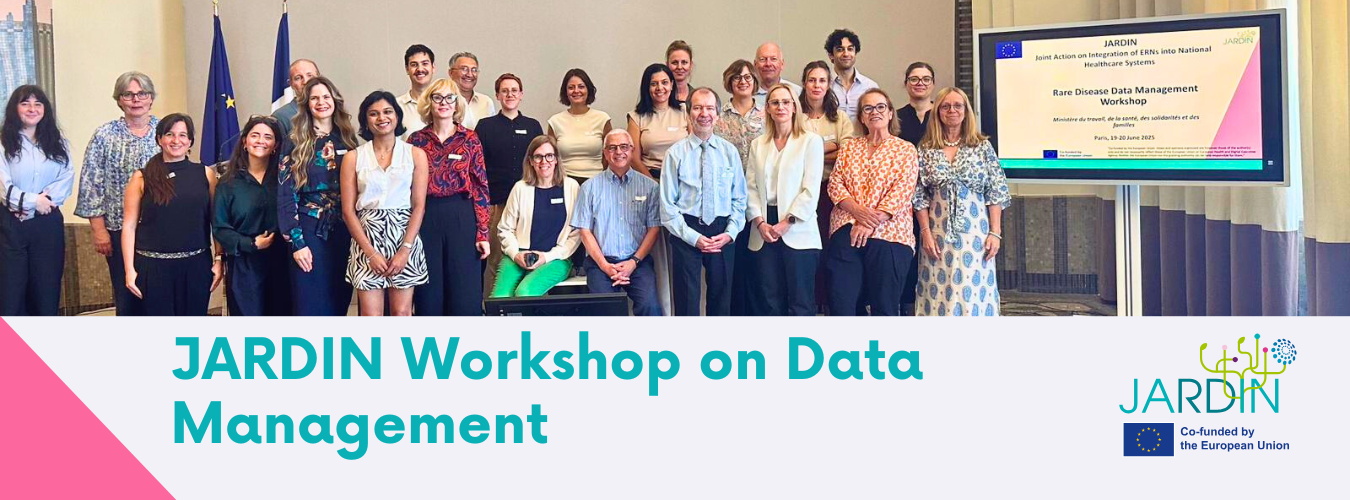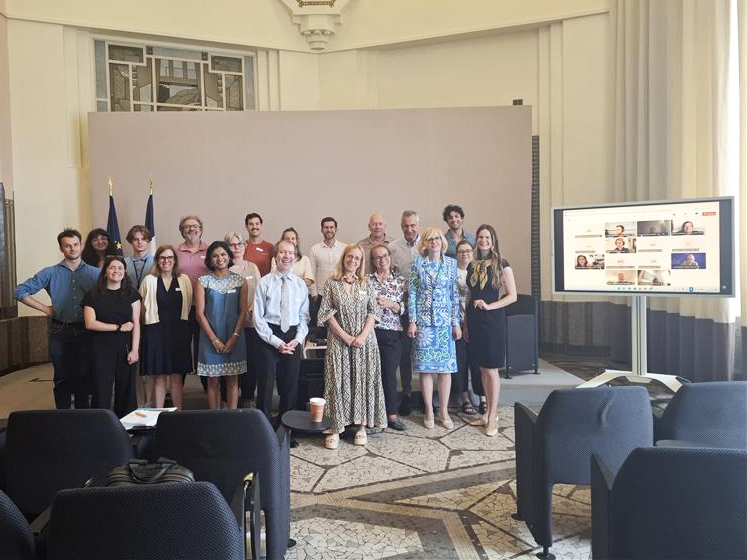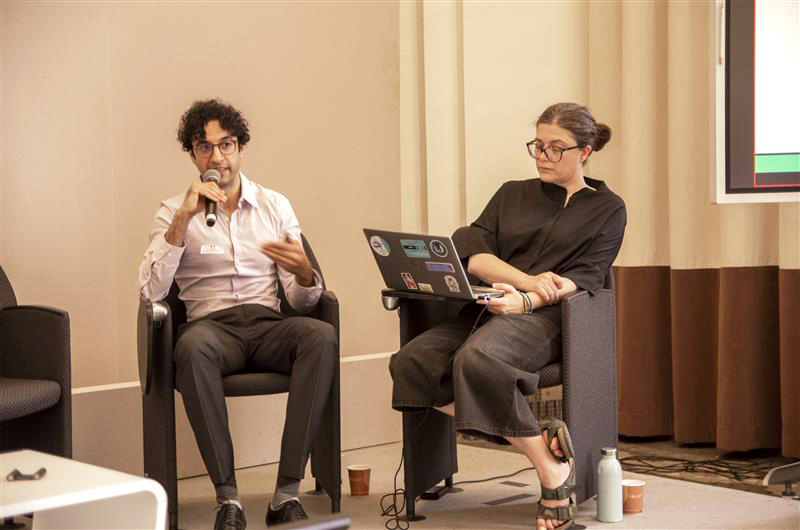JARDIN Data Management Workshop
October 1st, 2025
-
- JARDIN
- Paris
- WP8

In June, ahead of the summer break, JARDIN hosted a Data Management Workshop in Paris, led by Work Package 8 of the Joint Action (JA), bringing together 75 participants from 21 countries.
The workshop aimed to identify barriers and explore potential solutions to the effective capture and reuse of rare disease (RD) health data, both at the point of care and beyond. Significant progress was achieved in reaching a consensus on the datasets and data standards needed to advance this goal.
The first day focused on outlining the current state of RD health data collection in EU Member States — from its initial capture in clinical settings to its primary and secondary uses. Sessions highlighted existing barriers and potential solutions, showcased practical examples of how RD health data can benefit patients and regional and national health systems, and facilitated an interactive discussion on the proposed JARDIN Consolidated Minimum Dataset for Rare Diseases. Participants also examined the added value of ORPHAcodes for extended uses of coded health data and learned about the national support systems in place for their use and implementation via the Orphanet Nomenclature National Hubs.
On the second day, participants took a closer look at implementable solutions to technical, legal, and organisational challenges in using and reusing RD health data. This included the presentation of a legal checklist designed to help Healthcare Providers (HCPs) address the legal requirements for data sharing.
Following the workshop’s success, Work Package 8 will continue refining and expanding the JARDIN Minimum Dataset, incorporating participant recommendations and additional features such as an in-depth user guide and detailed definitions of each of the data elements. The JA will also maintain close contact and continuous communication with participants and Member States to ensure that progress remains practical and targeted. Furthermore, JARDIN Work Package 8 will look to establish collaborations with other European initiatives, such as X-Share and Xt-EHR, with the aim to maximise synergies in RD Data Management and to optimise outcomes for RD patients.
 CONTACT
CONTACT















